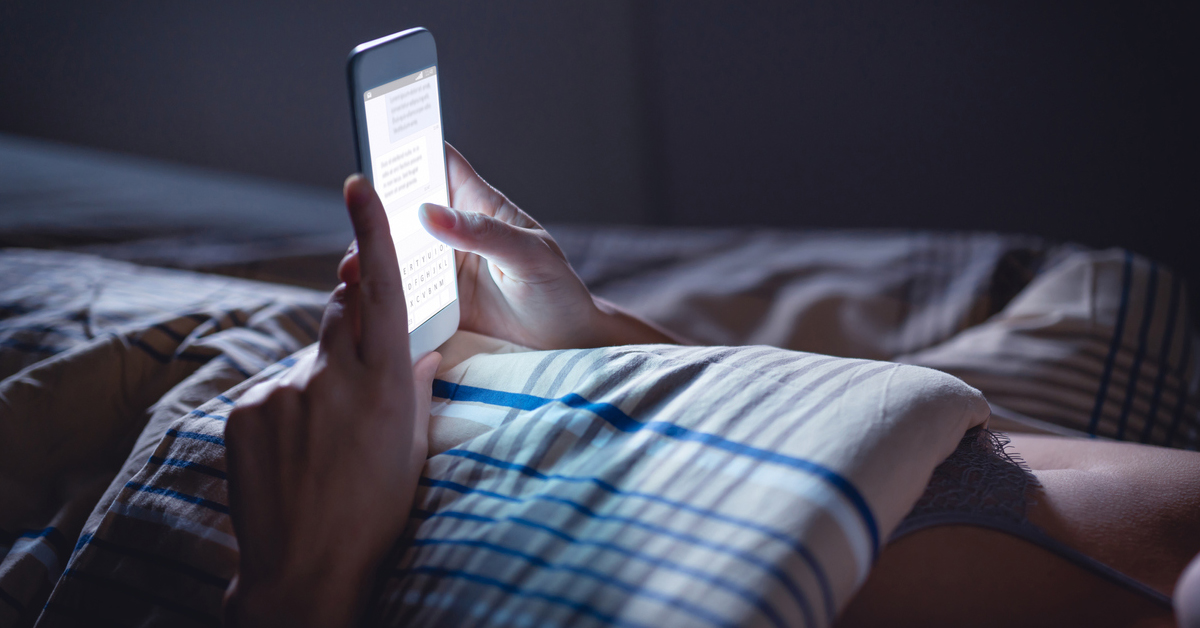When struggling to balance the pressures of modern life, something has to give so that something else can have our full attention. For 70% of Americans, good sleep is first on the chopping block. Barriers to healthy sleep have always existed, but the 21st century poses new and newer threats to grabbing enough ZZZs.
Blue light created by mobile devices, tablets, and other screens can literally inhibit hormones responsible for better, quicker sleep. And pings, beeps, and vibrations from mobile updates keep us in a state of alertness. But screens aren’t the only enemies of sleep. Other, well-known factors play a role.
At UAB Medical West, we’ve seen first-hand how poor sleep cascades into other pressing health issues. Stress, higher blood pressure, lower energy levels, and even worsening diabetes can result from a chronic lack of sleep. So, here are 4 easy ways to ensure better sleep today so that you can tackle modern living tomorrow.
Top Tips for Better Sleep
Limit Caffeine Intake
This one sounds like a no-brainer, we know, but caffeine isn’t limited to coffee, and some people are more sensitive than others to the mood- and energy-boosting substance. The majority of Americans report consuming about 1.5 cups of coffee (about 135 mg of caffeine) per day. At maximum, otherwise healthy adults without predispositions to anxiety, hypertension, or high blood pressure may safely consume up to 4 cups per day (about 400 mg).
There is, however, a link between certain genes and caffeine sensitivity. And unexpected sources of caffeine may trick us into consuming more than we intend. As you limit your coffee each day, keep an eye out for these caffeinated products, too:
- Sodas
- Energy Drinks
- Mocha- & Coffee-flavored products
- Chocolate
- Some Teas (Black, Green)
- Certain Medications
- Some Additives (e.g. Yerba Mate)
Limit Screen Time
For some of us, this top tip will hurt acutely (you know who you are). While a quick scroll on your favorite social media app may seem innocent enough before dozing off to sleep, your brain chemistry would beg to differ.
Harvard Medical School has drawn parallels between blue light from screen devices and the limited production of melatonin—a sleep-inducing hormone that our brains naturally produce. Thankfully, this has an easy fix. According to the Sleep Foundation, prohibiting use of screen devices for 30 minutes before bedtime creates a window for melatonin production, helping you get to sleep better and faster.
Consider picking up a book instead, or your favorite e-reader that isn’t also backlit.
Incorporate Exercise into Your Routine
Exercise on its own is another hassle of modern life. It’s hardly revolutionary to claim that daily exercise improves x, y, & z. But to achieve better sleep, even mild daily exercise can make a serious difference. You don’t have to hit the gym for two hours every night. There are other, more modest exercises you can do without expense, annoyance, or discomfort.
Taking a walk (even for 15-30 minutes) has been shown to boost mood, empower your immune system, and reduce high blood pressure and stress. Of course, walking also supports healthier, more restful sleep. Walking wherever and for however long you can promotes a cycle of better sleep, more energy, and improved fitness—all of which feed back into better sleep and overall health.
Take Sleep Seriously
The first step to better sleep is to start taking sleep seriously. Set a bedtime each night and stick to it. As medical research moves forward, we’re learning more and more about how our bodies are designed to support rest. A recent study concluded that our minds change after midnight due to a “24-hour cycle of activity that influences our emotions and behavior.”
In essence, staying awake beyond the midnight hour has consequences for our physical and mental health. Support better sleep habits by turning your bedroom into a palace for repose. Invest in fans, white noise machines, comfortable sheets, or even a larger bed to promote comfort.
Sleep isn’t optional and everyone needs it. Anything that can help you sleep better should be considered as a medical necessity.
Don’t Settle for Bad Sleep
From top to bottom, there’s hardly a critical function that good sleep fails to improve and hardly a health ailment that bad sleep can’t make worse. But the good news is that better sleep starts with a choice and a plan of action.
Take just one of the above-listed tips and try it for a week. If you notice improvement, incorporate another tip and another. Eventually, you’ll realize that better sleep makes for a better life. Nothing worth having comes to us instantly, but with focus and dedication, you can improve your rest and your daily quality of life. For everything else, UAB Medical West is here to help you.
Need some help getting better rest? Visit a healthcare professional today.
You’re not alone in pursuing better sleep. UAB Medical West promotes healthier living and healthier sleeping in a community near you, including Hueytown, Hoover, Bessemer, McCalla, Vance, and others. Underlying issues, such as anxiety, hypertension, high cholesterol, and restless leg syndrome can also compromise your sleep and quality of life. Let a professional diagnose and help your sleep issues by calling (205) 481-7000 today or contacting us online.
